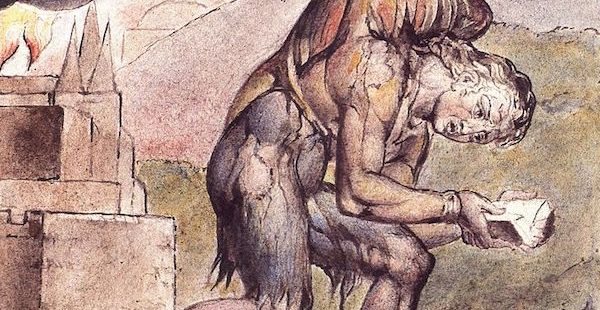
The Burden of Our National Guilt: Reflections on Slavery, Race, and Politics
Whether we like it or not, Christians must think through racial issues very carefully. Why? Because everyone is talking about them, and we cannot afford to be wrong in our understanding. Christ’s church is a place for healing and reconciliation, but this cannot happen if we are not thinking biblically about these issues.
My purpose in writing is not to lay out a clear, concise explanation of how we are to think, but only to lay out several observations, which may help our thinking.
The Burden of Our National Guilt
Harriet Beecher Stowe, the famed abolitionist who wrote ‘Uncle Tom’s Cabin,’ was a lover of the book ‘The Pilgrim’s Progress.’ Using the analogy of the book, she likened slavery to Christian’s burden, calling slavery “the burden of our national guilt.”
Stowe believed that, due to emancipation, this burden had “rolled off and I hope has fallen into a sepulcher from which no [devil] ever so intent on mischief shall ever fish it up.” Unfortunately, there is more to the story: Stowe did not know about the coming Jim Crow laws, the blatant discrimination, or the covertly racist policies of the government which would ensue after emancipation. Surely, these things are also a burden of national guilt.
Strapping the Burden on Tighter
The glory of Christ’s forgiveness is that God forgave us “all our trespasses, by cancelling the record of debt that stood against us with its legal demands. This he set aside, nailing it to the cross” (Colossians 2:13-14). Such forgiveness is truly ‘Christian,’ for it is radical and countercultural.
It comes as no surprise that such forgiveness is non-existent in the world. The world does not know how to look past offenses. We may not live in a culture of blood feuds, but recent events indicate that the faults of the past have never been forgiven. We constantly hear about injustices to every group of people, from slavery to land seizures of the past.
What is troubling is that Christian forgiveness is forgotten in the church. Take my own denomination, the Southern Baptist Convention, as an example. The Convention formally apologized for their role in slavery during the 1990s – and forgiveness was extended. Why then is a large part of the SBC at the forefront of the fight for ‘wokeness’?
It is as if we are strapping the burden of our national guilt on tighter, rather than leaving it behind at the cross.
Confessing and Forsaking
The Biblical model for dealing with sin is twofold: the Christian confesses his sin, and the Christian forsakes his sin. He does not marinate in its guilt, but he actively obeys God, recognizing his new identity in Christ.
The current model of dealing with racial issues seems to be one of rehashing and regretting. We need to rehash all of our racial faults from the past, and then we must live in constant regret for them. Those who suffered (and especially, those whose great-ancestors suffered) surely have the ‘most valid’ opinions on what must be done.
Politics and Propaganda
Perhaps the main reason why racial issues are so important is because they have been politicized. Politicians have found that racial issues touch the human heart, bringing up powerful emotions of suffering, pain, and hate. Hence, they have become a secret weapon with a hidden agenda.
Perhaps the most vile and despicable example of this is the New York Times’ ‘1619 Project.’ This piece of propaganda (and the term is not too strong) urges readers to consider the founding of America as 1619, not 1776. Why? Because, according to the Project, the real foundation of America is slavery, and the first slave ships arrived in 1619. Never mind the Declaration of Independence and 1776 – our country came into existence only with the arrival of slaves.
Never mind that this is a blatantly skewed perspective. Never mind that top historians have criticized this project as being downright false and misinformed.[1] The leaders of this project have admitted that it is aimed at ‘reframing’ American history.[2] Even if it is false, it is a powerful way to strap the burden of guilt on tighter, so it is now being actively taught in multiple American schools.[3] To clarify: I do not believe that we should ignore our past. We should learn from it. Nor am I under any illusion that discrimination or racism is absent from American society. It is not only alive, but thriving in certain ways. But I am disillusioned that so many Christians have bought into this unbiblical approach to racial issues. And I’m disappointed that we have strapped this burden of guilt more tightly onto our national shoulders.
[1] https://www.theatlantic.com/ideas/archive/2019/12/historians-clash-1619-project/604093/
[2] https://www.newsweek.com/new-york-times-1619-project-uses-slavery-advance-left-wing-propaganda-opinion-1456180
[3] https://reason.com/2020/01/28/1619-project-new-york-times-public-schools/



